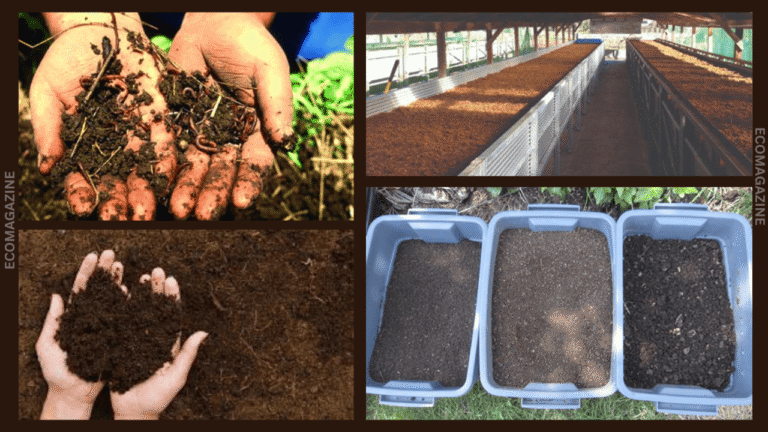When it comes to self-sufficiency and sustainable living, composting is often one of the first steps people take. But not all composting methods are created equal — and one of the most powerful, efficient, and underappreciated techniques is vermicomposting.
Using worms to break down organic waste might sound messy, but the reality is quite the opposite. Vermicomposting is clean, fast, and incredibly rewarding. In fact, once you understand its full benefits, you might wonder why you didn’t start years ago.
This method is perfectly suited to modern households. It doesn’t require much space, doesn’t smell if done properly, and turns trash into treasure right before your eyes. You’re not just composting — you’re creating a closed-loop system that benefits your home, your soil, and your food supply.
In today’s throwaway culture, vermicomposting offers a refreshing shift in mindset. It reminds us that waste isn’t waste at all — it’s just raw material waiting to be transformed into something that feeds life again. And nature’s hardest workers — the worms — are the key to making that transformation possible.
What Is Vermicomposting?
Vermicomposting is the process of using earthworms — usually red wigglers — to consume food scraps and organic waste, turning it into nutrient-rich compost called castings. These castings are often referred to as “black gold” for a reason: they’re one of the most potent natural fertilizers you can get your hands on.
The worms do all the heavy lifting. As they eat through waste, they break it down biologically and chemically, producing compost that is far more refined and immediately usable than traditional backyard pile compost. The end product is dark, crumbly, and packed with beneficial microbes and minerals that plants absolutely love.
Best of all, you don’t need a farm or a garden to start. Vermicomposting can be done with a small bin, a breathable lid, some bedding material, and a healthy starter colony of worms. It’s low-tech, low-maintenance, and incredibly rewarding once you see the results.
If you’re new to the concept, here’s a helpful breakdown of how vermicomposting works and why it’s so effective. It’s a practical guide to turning everyday scraps into something genuinely valuable.
Why Worm Castings Are Garden Gold
Worm castings don’t just nourish the soil — they transform it. They improve aeration, help retain moisture, and boost microbial life, creating a fertile environment where plants can thrive naturally. Whether you’re growing herbs, vegetables, or flowers, adding vermicompost to your soil can dramatically improve growth and yield.
Unlike synthetic fertilizers, worm castings won’t burn your plants. They release nutrients slowly and steadily, allowing plants to absorb exactly what they need, when they need it. Plus, the microbial diversity in vermicompost helps protect plants from certain pests and diseases — acting as a natural immune booster for your garden.
Research has shown that plants grown in vermicompost tend to develop stronger root systems, larger leaves, and greater resistance to stress. This means they require less intervention and offer more consistent results, even in less-than-ideal conditions.
Another often-overlooked benefit is the ability of worm castings to rebalance depleted soil. Over time, gardens can become nutrient-poor due to overuse or chemical inputs. Vermicompost helps restore vitality, rebuilding what was lost and creating a foundation for future growth.
Eco-Friendly and Waste-Reducing
One of the biggest advantages of vermicomposting is how much kitchen and garden waste it diverts from landfills. Instead of tossing vegetable peels, coffee grounds, and eggshells in the trash, you can feed them to your worms. Over time, this significantly reduces your household waste and your environmental footprint.
Organic waste that ends up in landfills doesn’t break down efficiently. It gets buried and decomposes anaerobically, releasing methane — a potent greenhouse gas. Vermicomposting allows waste to decompose aerobically, cutting down methane production and producing something useful instead.
This makes vermicomposting a key player in climate-conscious living. You’re not just keeping food waste out of the trash — you’re actively reversing damage by creating soil that sequesters carbon and supports sustainable ecosystems.
It also fosters a powerful connection to your own consumption habits. The more you vermicompost, the more mindful you become of what you waste — and that awareness ripples through the rest of your lifestyle, promoting less plastic, less packaging, and less excess overall.
Perfect for Small Spaces
Unlike large compost bins or outdoor piles, vermicomposting can be done indoors or on a balcony with minimal space. A simple worm bin can fit under the kitchen sink or in a laundry room, and it won’t smell if managed properly. It’s ideal for urban dwellers or anyone without a big yard.
Because vermicomposting doesn’t rely on high heat, it’s also faster in colder climates than traditional compost piles. The worms keep working through the winter months, provided the bin is insulated or kept indoors.
This compact, scalable system makes it accessible to almost everyone — from college students in dorms to retirees in apartments. You don’t need a homestead to embrace self-sufficiency. You just need a bit of curiosity and a willingness to try something new.
And the experience itself becomes a small, daily ritual. Feeding the worms, checking the bedding, harvesting the castings — it’s a hands-on reminder of how life supports life, even in the tiniest spaces. That kind of connection is rare, and deeply grounding.
Final Thoughts
Vermicomposting is more than just a gardening trick — it’s a sustainable system that turns waste into wealth. With just a small bin and a handful of worms, you can create a continuous supply of rich compost, reduce your trash output, and nourish your plants without ever relying on synthetic inputs.
It’s practical. It’s simple. And it’s surprisingly satisfying.
As we face rising food costs, climate challenges, and increasing pressure on our food systems, solutions like vermicomposting are no longer optional — they’re essential. They put power back in your hands and help you build resilience from the ground up, literally.
Whether you’re a seasoned homesteader or someone just dipping a toe into self-sufficient living, vermicomposting is one of the smartest habits you can adopt. Nature has already given us the tools — now it’s up to us to use them wisely.


